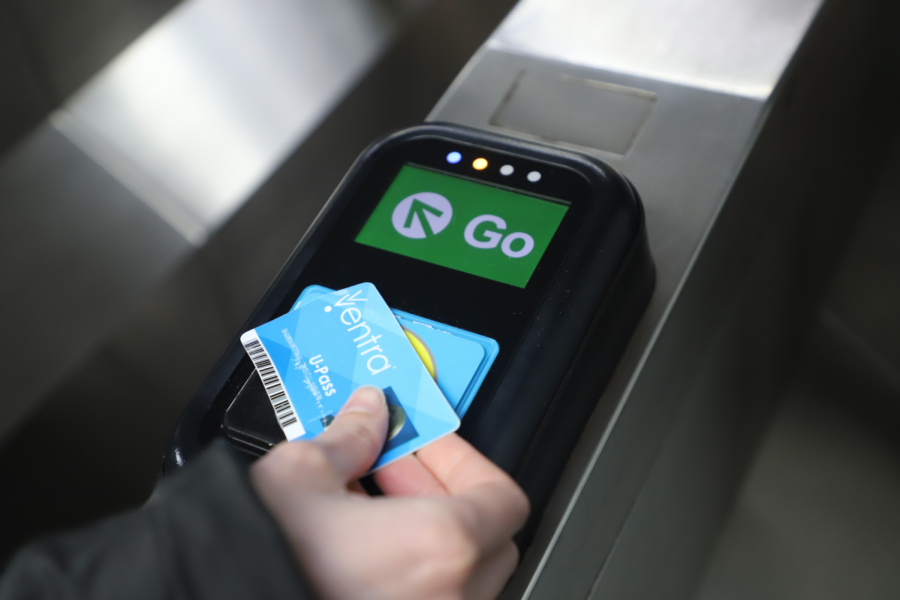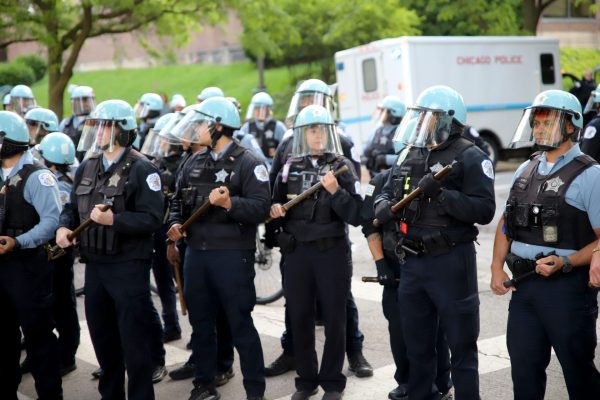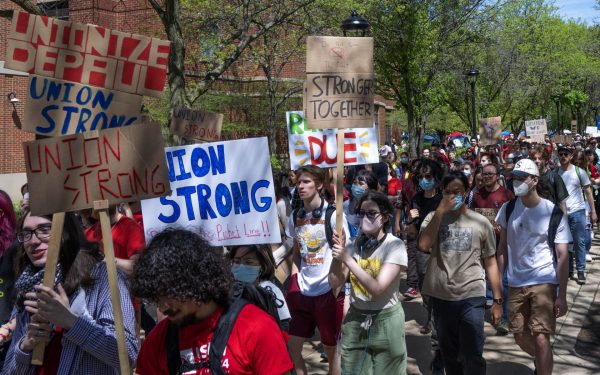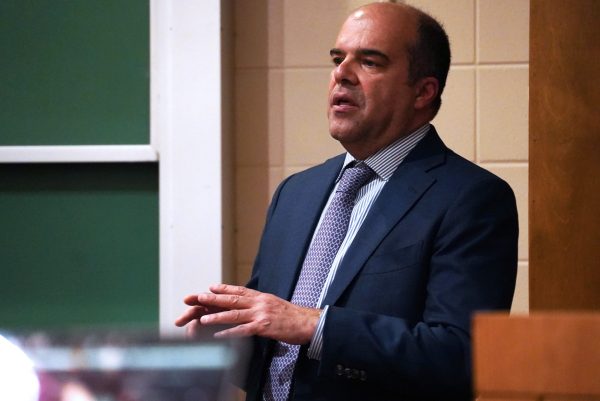Students push for consistent U-Pass access for all
Students are currently able to use their U-Passes to access the CTA, but DePaul student U-Passes are not able to be used during seasonal breaks. Part-time students are also not able to use U-Passes.
At $105 a quarter, the Chicago Transit Authority (CTA) U-Pass can save students a significant amount of money. A daily CTA pass is $5, so assuming a student rides the CTA just two days per week, they pay $110 a quarter in CTA fare.
The U-Pass is offered by CTA, providing full-time, in-person students the opportunity to purchase a pass that provides unlimited bus and train rides on CTA transportation for a term. The program is available at DePaul, as well as other area schools including Loyola, Northwestern, and UIC.
However, the ability to purchase a U-Pass is contingent on the amount of credits a student takes in a given academic quarter or semester. Per CTA U-Pass requirements, students who partake in the U-Pass program must be full-time students. For DePaul undergraduates, that means taking a minimum of 12 credits each quarter.
DePaul, as well as other participating area institutions, has very little input into requirements and costs for the programs, according to Vice President for Information Services Bob McCormick.
“The U-Pass rules are mostly set by CTA, so DePaul just has to contractually abide by them,” wrote McCormick in an email to The DePaulia. “Except for summer [quarter], DePaul isn’t able to offer U-Pass to part-time students.”
Chicago’s U-Pass system is either on par or more economical for students compared to other major cities, according to The DePaulia’s analysis.
While the cost varies a bit from school to school depending on fees and length of term (DePaul is on quarters instead of semesters), the cost tends to be mostly consistent. UIC, for example, costs $163 per semester, while Loyola costs $155 per semester.
In New York City, the Metropolitan Transportation Authority (MTA) offers no discounts for university students. A single ride on most MTA transportation is $2.75, meaning that university students most likely pay over $120 for a quarter length term.
Los Angeles, however, offers a university U-Pass for its Metro system. The price of a Metro U-Pass varies from school to school, but the universities are billed per boarding at 75 cents.
At DePaul, the fee is calculated differently.
“The U-Pass fee is calculated using the CTA’s daily rate of $1.25 per day plus DePaul administrative fee of 5.3 percent,” McCormick said. “This may vary year to year, depending on the number of available CTA service days.”
Both the Student Government Association (SGA) as well as Information Services have made appeals to change the policy.
“DePaul has tried to negotiate terms with CTA several times over the last few years, but CTA have never budged on any of the terms of the contract, probably because it is offered to many other schools,” McCormick said.
At DePaul, students must fit three criteria in order to qualify for the U-Pass. According to Information Services, students must be in a degree-seeking or certificate program, be full-time students, and have at least one class on-campus.
“Currently, we are in the process of helping graduate students and part-time students to obtain a U-Pass,” said SGA Senator for Commuter Students Zoe Bragado. “If re-elected, I am hoping to work with other members to try to alleviate the cost for students if we are unable to get them a U-Pass, whether that is through a stipend for transportation, free-day passes, etc.”
During her sophomore year, Bragado took the CTA every day.
“If I did not have a U-Pass, it would cost me $2.50 every time I rode the train,” Bragado wrote in an email. “If I took the train to school and home two days a week, that would be $10, and [weeks] I would commute four days, it would’ve been $20 a week.”
While U-Pass offers discounted fares for the CTA, the Metra system, which services many Chicago area suburbs, offers no discounts for university students.
Metro rates vary across lines and stations of origin: a one-way, weekday ticket ranges from $4-$9.50, or $8-$19 a day. Metra is now offering a “Super Saver” option, where a $100 flat rate pays for unlimited rides across all zones for the month. However, that can still be almost $300 per academic quarter for students.
Past attempts for a university discount with Metra have failed.
“DePaul hasn’t tried to negotiate with [Metra] directly,” McCormick said. “I am aware of approaches by student populations from many schools, including DePaul, over the last few years, but they were ultimately unsuccessful.”
The CTA is looking to change its policy to include part-time students, a first since the program launched in 1998.
“In the beginning of 2019 CTA launched two pilot programs to add part-time students at UIC and City Colleges of Chicago to the U-Pass program through the end of this year’s semester,” according to an email from CTA media relations. “So far, the agency has seen success within these two programs, and will consider the possibility of expanding the program to part-time students at other participating schools in the future. No details yet on a possible timeline.”
DePaul students could see part-time students being added into the program in the future. However, the DePaul Student Government and students continue to push for increased access for U-Pass.
















